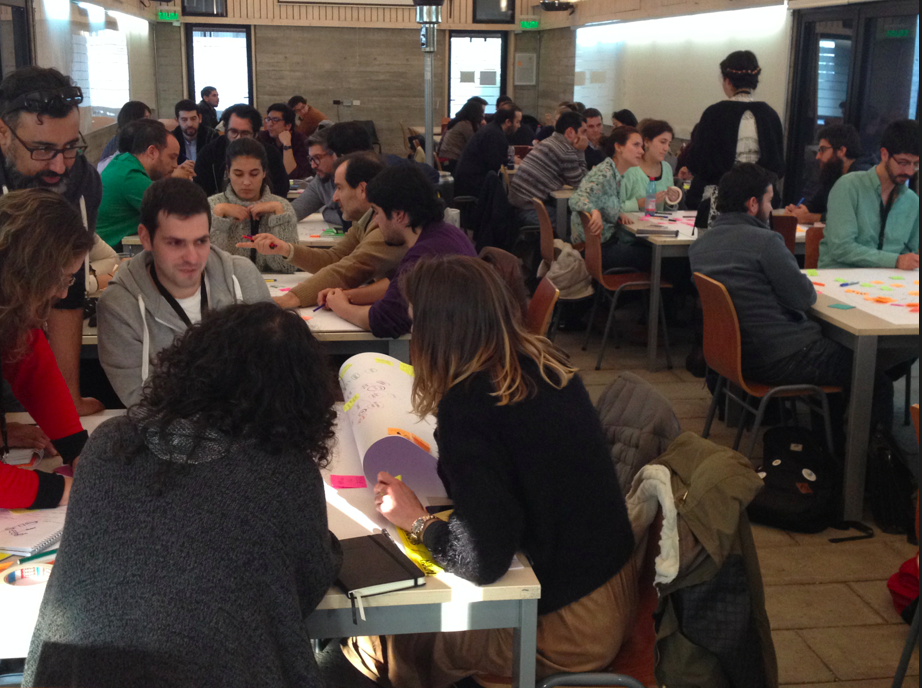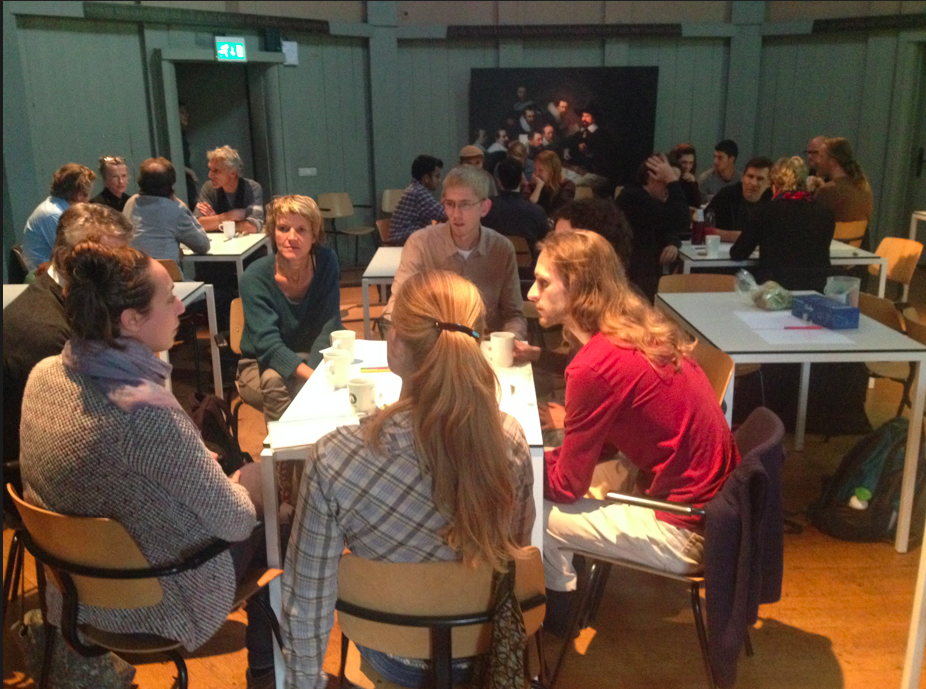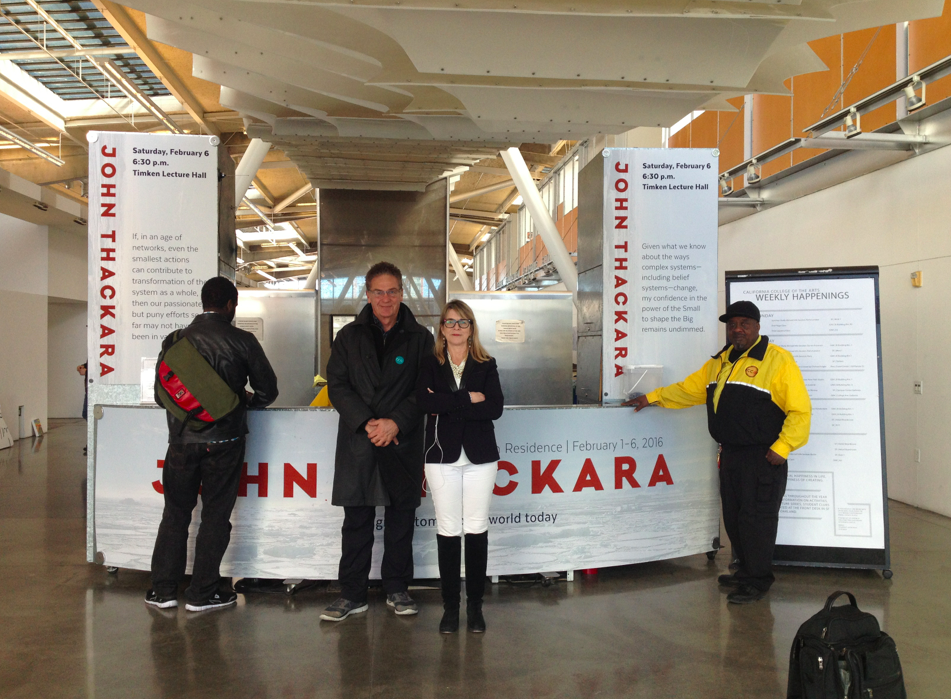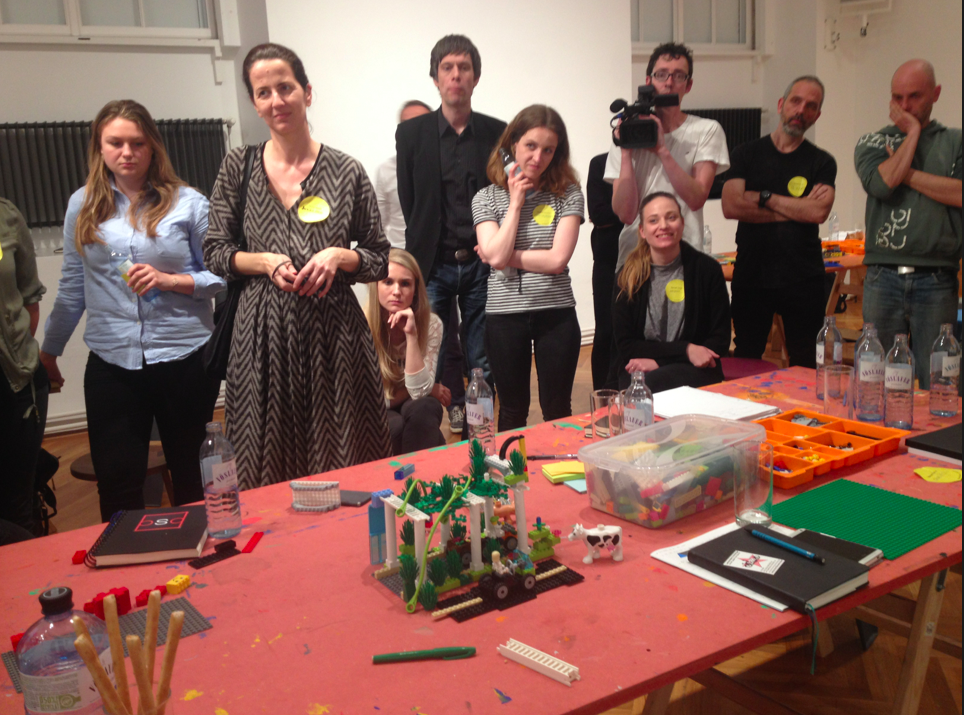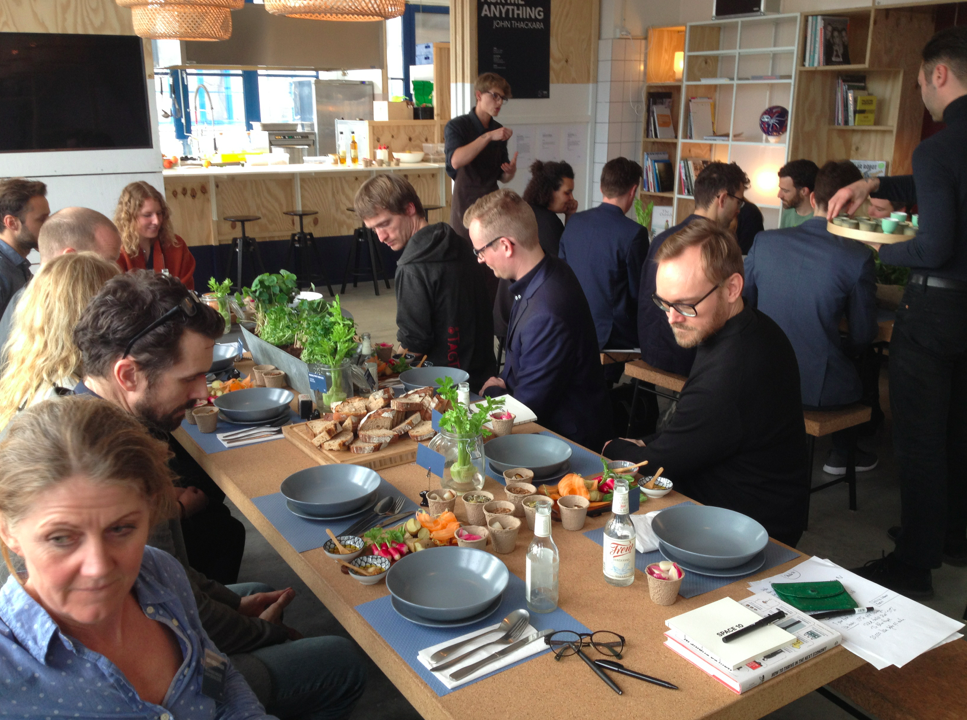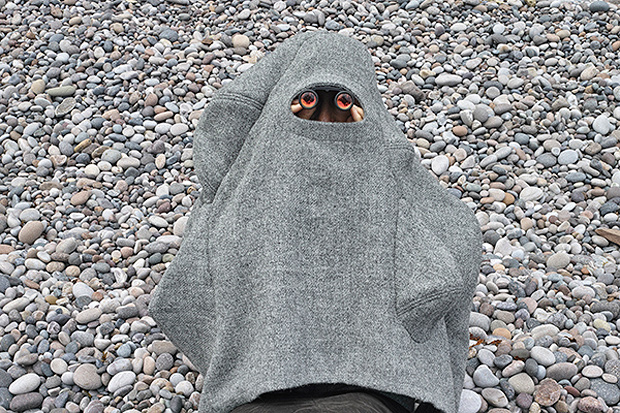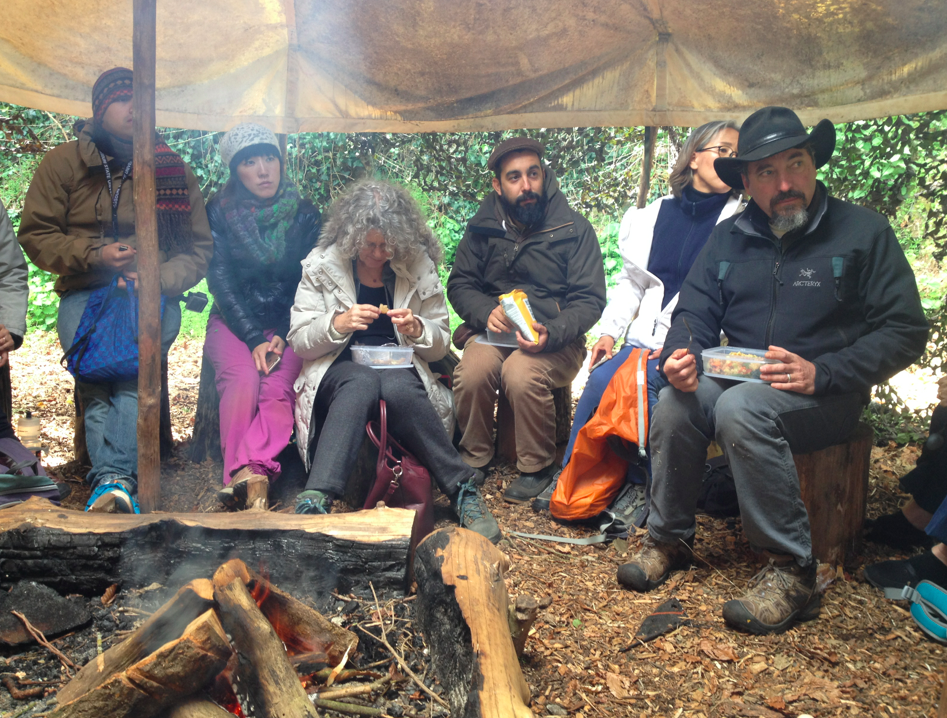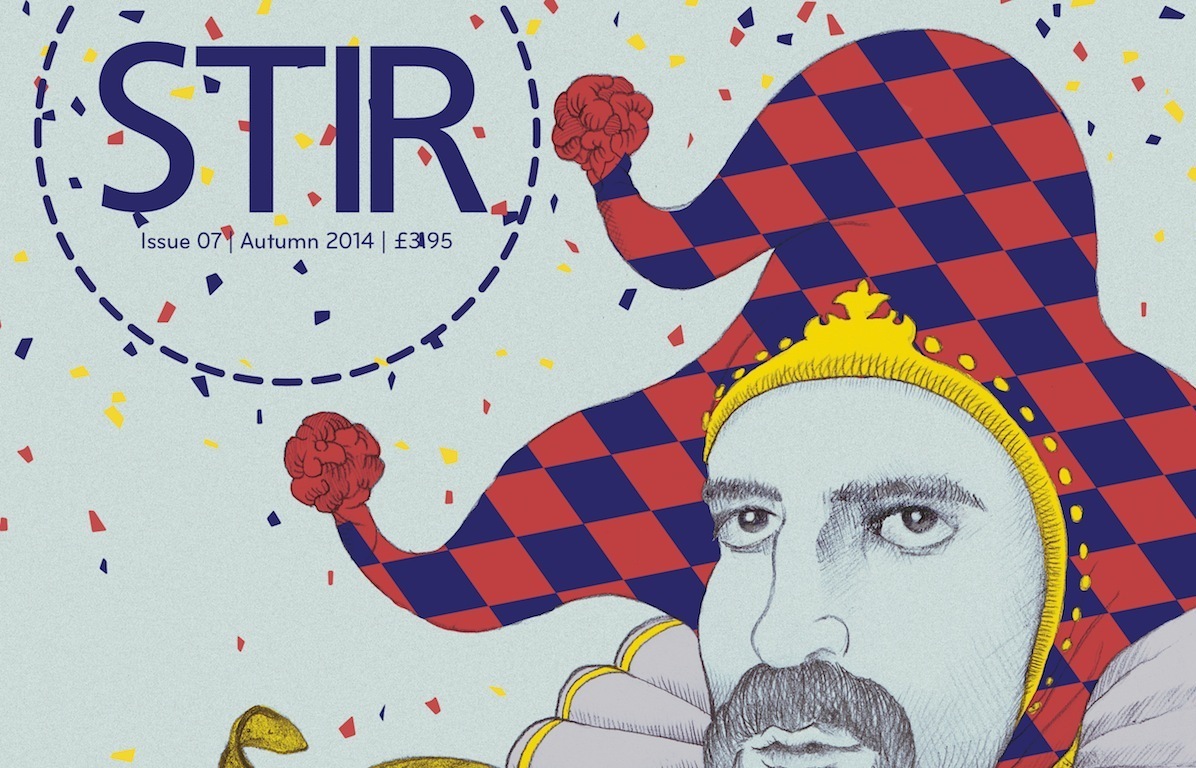Together with our friends at the Unbox Festival in Delhi, and designer Mansi Gupta, we went the heart of India’s largest leather-producing region. We discussed ways to develop products and services that combine clean forms of leather making with direct connections between between producers and customers. (Leathershed Lab, India)
Service Innovation, Santiago, Chile
Kris2022-08-28T13:01:06+00:00We ran a Pro-Am workshop on service design (below) during the Service Design Congress held in 2015 at the Universidad Católica de Chile
Lab for Change Makers, Amsterdam
Kris2022-08-28T12:59:13+00:00What is an economy actually for? Together with de Waag, we invited social change makers, inventive life hackers and enthusiastic self-organized communities to explore the power of small actions to transform the bigger picture.
Wild work: connecting the social and ecological by design
Kris2022-08-28T12:57:22+00:00A week of workshops at California College of the Arts, San Francisco (John is shown with our host Leslie Carol Roberts). An explosion of new economy models is surfacing all around the world: Sharing. Peer-to-Peer. Commons’ ownership. Mobility as a service. Bioregions. Local money. Transition Towns. Something is happening – but is there a pattern?
Re-thinking urban-rural mobility, Vienna
Kris2022-08-28T12:47:08+00:00Together with StadtFabrik (City Factory) – MAK Vienna’s real-time research lab – we helped a multi-disciplinary group develop a new story about mobility and infrastructure in Vienna. Our guest projects were Biotope City; Komobile,who design decision-support software for cargo bike systems; and Cargo Bike Collective.
Space 10, Copenhagen
Kris2022-08-28T12:41:23+00:00It was a thrill to follow in the steps of Tomorrow’s Meatball. We were invited by the Danish Design Centre to run an “Ask Me Anything” lunch at Copenhagen’s latest creative innovation lab, Space 10. Our free-ranging discussion revolved around design thinking, business models, emergent technologies, complex challenges and sustainability.
School of the Moon, Scotland
Kris2022-08-28T13:33:13+00:00We explored new ways to connect with the ecological and cultural assets of ‘Big Tree Country.’ Our group included a blacksmith, a digital arts producer, a land owner, a raspberry farmer, a soldier turned master mead maker, an expert on the ecosystems to be found in dry stone walls, a service designer, an artist who makes outfits that disguise you as a rock, the tutor at a forest school, and a designer of water cleaning systems. Our host was with Clare Cooper from Cateran’s Common Wealth
Bioregions by design, South Devon, England
Kris2022-08-28T12:26:41+00:00A bioregion re-connects us with living systems, and each other, through the unique places where we live. It acknowledges that we live among watersheds, foodsheds, fibersheds, and food systems – not just in cities, towns, or ‘the countryside’. Together with Isabel Carlisle and Regenesis we helped to run a two week course at Schumacher College.
https://www.schumachercollege.org.uk/courses/short-courses/bioregionalism-by-design
Back To the Land 2.0, Chora Connection, Copenhagen
Kris2022-08-28T12:13:27+00:00This Chora Connection workshop in 2016 brought together 12 pioneering project leaders who are developing real-world examples (see map) of how local living economies work. We discussed the fact that city and rural are dis-connected – and what to do about it. Chora connects new partners: regions, municipalities, associations, guilds.
choraconnection.dk/back-to-the-land-2-0
Back To The Land 2.0, Stir To Action, England
Kris2022-08-28T12:19:09+00:00In Bridport, England, we explored new ways for city people to re-connect with the land—and how to make them happen: Ways that are part-time, but long-term; ways that involve an exchange of value, not just paying money; ways to share knowledge, land, and equipment in new ways; ways based on historical links between town and country—but reinvented in an age of networks and social innovation. Afterwards, the Agroecology Land Trust made a to-do list of practical issues that need to be addressed.

